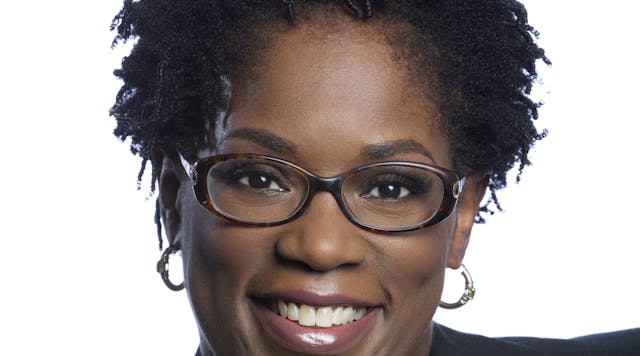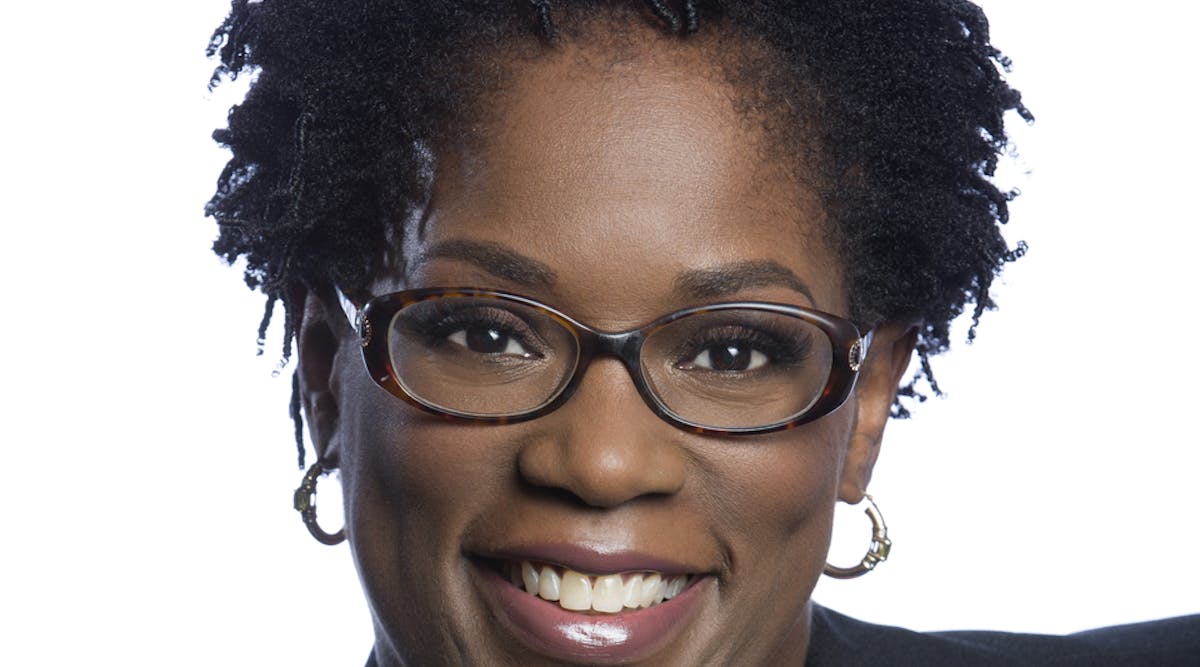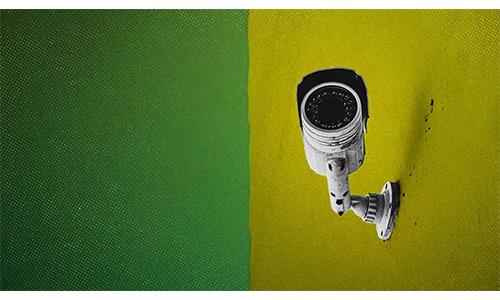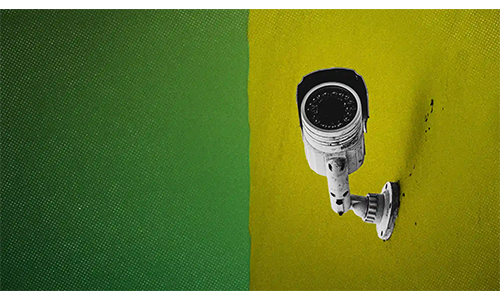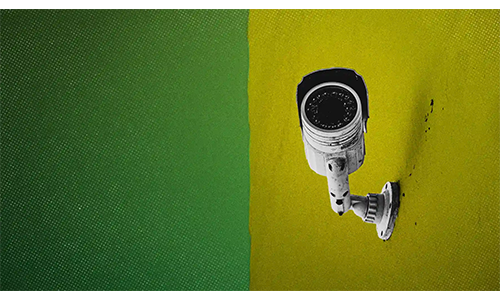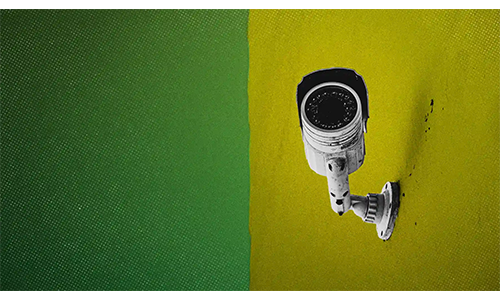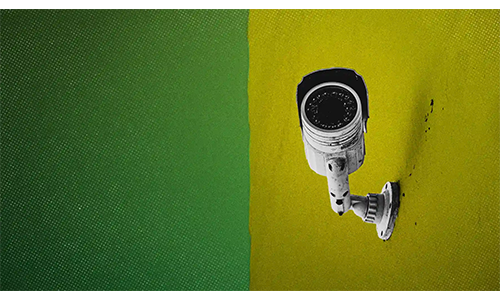Antoinette Tuff delivered the opening keynote presentation — "Conversation in the Crosshairs: How to Create a Psychologically Safe Workplace" — at the Safety Leadership Conference, on November 10, 2020. Register now to attend this year's event in Cleveland, Ohio, Oct. 18-20, which is dedicated to developing and sustaining a culture of workplace safety.
Decatur, Ga., is a suburb of Atlanta with just under 20,000 residents. The city is known for its long-running arts festival that attracts around 60,000 attendees each May.
Every Labor Day weekend, the AJC Decatur Book Festival celebrates literary excellence with 85,000 participants.
On Aug. 20, 2013, Decatur made headlines not because of a cultural event, but for being the location of the only school shooting in the United States without fatalities or injury.
Buzzed In
Antoinette Tuff was working the front office at Ronald E. McNair Discovery Learning Academy that warm August afternoon.
At that time, parents normally filtered in to pick up their child who attended the elementary school with more than 700 students. A buzzer system ensured only parents and authorized staff could enter the building.
As Tuff and other staff members prepared for dismissal, a parent allowed a 20-year-old male to walk through the door, bypassing the security measure.
Tuff tells EHS Today: “How many times do we currently hold the door open for someone and allow them to walk into the building, not knowing that they could be a danger to the students that are actually in the school?”
The male approached the front desk. He had a .762-caliber AK-47-style rifle and 500 rounds of ammunition. He immediately told a teacher to warn everyone that he was in the building.
The teacher bolted to the teachers’ lounge to alert the staff, which began to cause panic. The commotion startled the shooter, who pulled out his gun and turned his attention toward the other room.
“It was the most frightening, overwhelming state that you hope that you’re never in,” Tuff says.
Tuff jumped into action, directing the male to come back to the front desk and let the staff spread the information. He was mad. He was angry. He was frustrated. Tuff kept her cool.
Tuff Tactics
The cafeteria manager walked in, unaware of the situation that was unfolding. The shooter ordered the man to get behind the desk with Tuff and fired a warning shot.
With his anger escalating, the gunman told the cafeteria manager to run and tell others that he would soon start shooting.
“This incident was about eight months after the Sandy Hook school shooting,” Tuff recalls. “So we all knew the devastation that happened with those innocent children. So he winds up leaving, and then I’m in the room with the gunman by myself.”
The gunman propped the front door open and began blindly shooting outside, pointing at no one in particular. Tuff had a number of choices at that point. She could run, hide or fight, one of the three widely-taught scenarios.
Instead, she turned to compassion, competence and control, what she now calls “Tuff Tactics.”
Pain Meeting Pain
A single mother, Tuff had been facing divorce from her husband of 33 years. She had been with him since she was 13 years old.
Tuff discovered that he had been having an affair, which flipped her world upside down and led her to attempt suicide just two days before.
“Two days before the gunman walked into the building, I tried to commit suicide,” she explains. “It wasn’t my first time, but it was my last. And that was because that gunman walking into the building was pain meeting pain.”
She continues: “I was able to show him compassion because I knew what that looked like. Someone showed me compassion two days before that, and I would not take my life. And so when you’re in that situation, it becomes how do you survive because you see this young man saying to you, he hasn’t taken his medicine. He’s walking to and fro, and you’re now trying to figure out, not only how can he survive, the kids survive, and yourself survive, but how can we all get out of here, including the police officers and everybody with no fatalities and no injuries and get out safe.”
Higher Calling
So how does someone have confidence in the midst of a tragedy?
The young gunman was telling Tuff that he was not only going to kill everyone at the school, but everyone that tried to interfere with his plan and himself. Her faith was her backbone and provided her solace, but she had to keep calm and drive the gunman’s emotions to diffuse the situation.
“You still try to sit there in your own feel on the inside to make sure that he knows that everything is OK,” Tuff explains.
That’s where control came into play. Tuff says the key to resolution was allowing the shooter to think he was in control of it all. That it was his decision and his decision only to put the weapon down.
As an eight-year employee at the school district, working with troubled children was commonplace for Tuff. She recalls one young student who would act out when she was feeling unsafe or uncomfortable. Other staff members would call on Tuff, who would be the only one who was able to calm the young girl down.
“I was always able to reach those kind of kids and those kind of people. They always gravitated to me,” she says. “And so not knowing that that was inside of me…I didn’t know that I was that calm, talking to him like that, until I went back to listen to the 911 tape myself. I can’t even tell you all that I said in that moment, because the whole time to be honest with you I was praying to God.”
The 911 tape captured Tuff’s resilience in her conversation with the gunman: “It’s going to be all right, sweetie. I just want you to know I love you, though, OK? And I’m proud of you. That’s a good thing that you’re just giving up and don’t worry about it. We all go through something in life.”
A Listening Ear
Law enforcement officials never had to converse with the young male. Tuff was on the phone with 911 dispatchers for 25 minutes, at which time she negotiated his full surrender.
The peaceful resolution was the result of making sure the shooter had her undivided attention, she says.
“Sometimes when you have people from different backgrounds and diversity, all they really want to know is: Do you hear me and do you see me?”
The Human Factor
When it comes to the business environment, leaders need to consider the emotions and feelings of their workers in order to improve morale and be proactive connecting with employees to prevent acts of violence.
Following the conclusion of the harrowing incident, Tuff uses her experience to demonstrate why a shift from the bottom line to a focus on the worker could prevent a similar situation from unfolding:
“As a manager, sometimes we just have to stop our busy lives. Even when you have 20,000 employees, or even if you have two employees, you may not be able to get to everyone. When you have meetings and are able to interact with those that work with you, allow them to be able to know that, ‘Yes, I may be the CEO. Yes, I may be the founder, but I’m still touchable.’”
Antoinette Tuff is a keynote speaker, workplace & school violence expert, student safety expert, thought leader, author, and community safety advocate. She was portrayed by Toni Braxton in the Lifetime channel movie, "Faith Under Fire."


